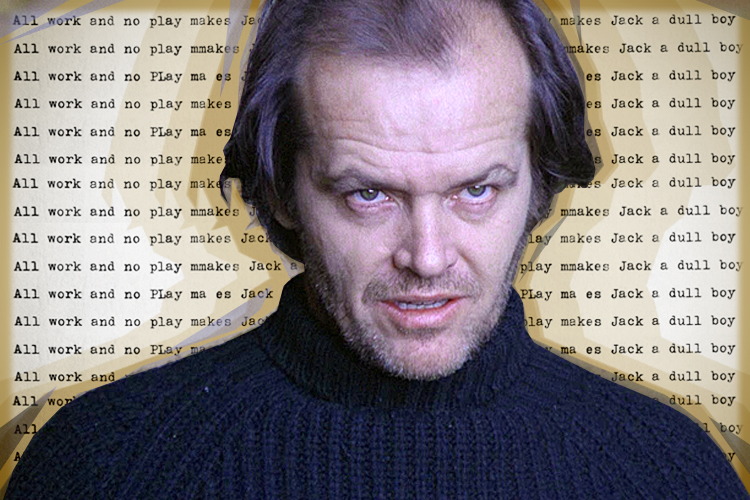Earlier this week an editor asked me if I could make a Monday deadline, expressing some concern that I might be forced to work over the weekend. It was a thoughtful gesture, but I couldn’t help but laugh a bit. As a freelancer with rolling, multiple deadlines, I had already been planning to work over the weekend. I work every weekend, just about. For that matter, I work over holidays. I work evenings. I work mornings. When I’m not asleep I work, basically, all the time.
To some degree, I work all the time for the reasons that you’d expect someone to work all the time. I am (as my wife would tell you) more than a little obsessive. I’m always aware that, as a freelancer, I only get paid for the hours I actually work. So I better work them.
Beyond that, though, I work all the time because the nature of what I do means that most of what I do is work. As a freelance writer, the movies I watch, or the books I read, or the links I click, are all potential story ideas to pitch and write and convert to dollars. In this context, what is free time and what is work quickly turns into an indistinguishable blur. I hated “Her,” but was watching it actually “work”? Alternately, I loved rereading “Do Androids Dream of Electric Sheep?” recently — but I gave myself time to do that because I figured out a way to use it in my “Her” review. I didn’t intend to write for pay about Cecelia Grant’s romance novel “A Gentleman Undone” when I read it. But then I did write about it. Does that mean it was work retroactively?
Even when I don’t write about things for pay, I often write about them on my own site, which is arguably promotional or marketing — especially when posts on my site end up getting me gigs elsewhere. And then there’s the time I spend pointing and clicking on social media, which certainly feels like an exercise in procrastination and time-wasting, but which often, in practice, leads to story ideas and gigs. Even spending time with my son or doing household chores can get converted to work product. Hell, as this essay shows, even work can get converted to work product. My life and my keyboard form a seamless whole, a ravenous ouroboros, with my laptop screen eternally swallowing my brain.
If that sounds oppressive — well, yes, working so much that you can’t even figure out when or if you ever stop working can get old. I had a seizure last year (which of course I wrote about), probably as a result of stress-related sleeplessness and anxiety. My wife, who had to call the ambulance, and who still has the occasional nightmare about it, has expressed her opinion that this is a pretty clear sign that I should work less.
Which I probably should. But my stress last year really wasn’t precipitated by working too much; it was precipitated by the fact that my main client went bankrupt owing me thousands of dollars and I was scrambling to figure out how I was going to pay my quarterly taxes and make up the lost income. Now that the client has (much to my shock) paid me back in full, and my finances have resolved themselves, I’m cheerfully working all the time again, sans sleep issues, sans stress, and (hopefully) sans seizures.
In a lot of ways, I actually feel lucky to be able to work all the time. If everything I do is work — all the movies I see, or books I read, or music I listen to, or even whatever thoughts I have — then nothing is work. I just get paid to consume/exist, and then write about it (which I like doing anyway). As a freelancer, the goal for me is to make this more the case, not less. The educational writing I do is more like a traditional job — and while I don’t hate it, I much prefer spending countless hours researching movie soundtracks. If I love doing something, spending more time on it isn’t a chore. I’m not oppressed because I work all the time. I’m fortunate. What more could I wish for? I get paid to do everything I do. My actualization is monetized. I’ve won capitalism.
Nice as winning capitalism is, though, it’s also somewhat unsettling. In an economy more and more focused on cultural production, the line between producer and consumer and marketer just about disappears. Writers throughout history have often simultaneously exulted and despaired at the way that their lives turn into their art, but having your life turn into a content mill seems like a new, unpleasantly banal twist. Even happy cogs are still cogs — working all the better because they’re happy, and willing to turn all the time.

